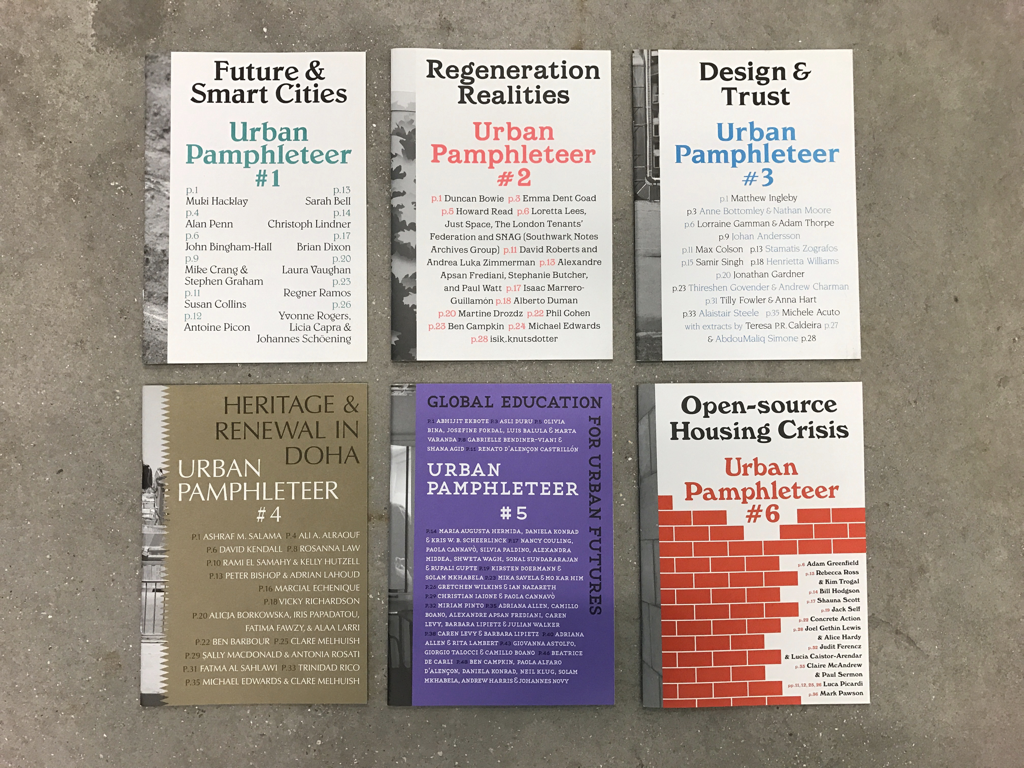Urban Pamphleteer
Rebecca Ross
I would like to use the opportunity of a week of focused time as well as a supportive community of creative intelligent people who think about and through design to REWRITE some relationships between graphic design and conventions academic publishing.
My main reference point is Urban Pamphleteer, a publication which I co-founded and have co-edited / art-directed for the past five years*. Urban Pamphleteer is an online and physical publication that engages with contemporary urban questions from academic as well as professional, community and creative perspectives. The intention is to stimulate debate, and in the process empower and inform citizens, professionals, researchers, institutions, and policy-makers, with a view to positively shaping change. I have begun to work on a conventional academic paper, reflecting specifically on Urban Pamphleteer, that both REWRITES the idea of a journal article but also fulfills the conventional/ institutional expectations and requirements of academic research and publishing. Through the residency, it would be great to experiment with the broader points and concerns in this article from other angles and in other forms.
To do this, I will briefly introduce Urban Pamphleteer and set into context. From there, it would be great to work with the group catalogue a range of ideas and examples of how graphic design interacts with standard definitions of publication even where it does so in unexpected or unanticipated forms. The British government’s criteria for evaluating academic publications might be a useful device over organizing / overturning:
- Originality
- Significance
- Rigour
What do these criteria mean for graphic design and what are some different historical and contemporary ways that GD interacts with them?
My working hypothesis in this work and some other work has been that conventional research protocols enforce an unfortunate separation between the production, form and circulation of knowledge, one that is bad for the wider world. I am optimistic about graphic design, a field where not separating the form of knowledge and the production of knowledge is a basic, becoming a strong participant in redressing this gap.
*The first six seven issues have focused on some of the most contested areas of debate, such as the phenomena of ‘smart cities’, ‘regeneration’, and ‘design against crime’, and the social and other impacts of associated discourses and practices. Rather than framing these as polarized debates, the publication has intentionally brought out complexity, and varied perspectives, communicating in a direct and accessible way.
